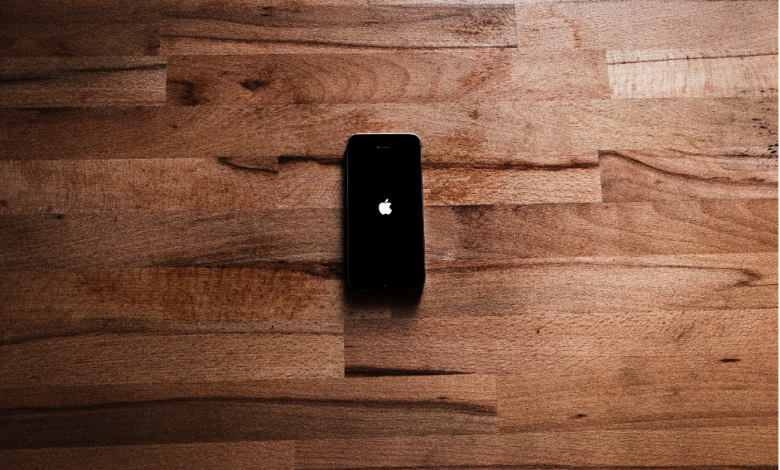
Are iPhones Susceptible To Viruses?
iPhones are often touted for their superior security compared to Android phones. However, you may wonder, can an iPhone get a virus? The truth is, it is quite rare for iPhones to become infected. In fact, as long as you do not tamper with your iPhone, the chances of viruses affecting your smartphone are quite slim. This does not mean that viruses on iPhones do not exist or that they are rare. All the same, there are enough cases when they were hacked and data was stolen. Read more in this blog post.
Is there a risk of iPhone virus infection?
Yes, iPhones can indeed get viruses. However, you’ll be glad to know that iPhones come with several safeguards in place to protect against mobile security threats, making it quite uncommon for an iPhone to be infected.
One of the biggest risks to your smartphone’s security is downloading apps from unofficial, third-party app stores. These apps often harbor malicious software, which can infect your device once downloaded, enabling hackers to gain control over your phone and access your sensitive personal and financial information.
When it comes to iPhone users, app downloads are restricted to the official App Store. This is one of the reasons why iPhones are rarely affected by viruses—Apple thoroughly vets all the apps available for their devices.
Is your iPhone infected?
Here are some warning signs to look out for that may indicate if your iPhone has been infected:
- Is your iPhone running hot? When your device overheats, it could be a sign of malicious apps overusing CPU resources and memory, causing your iPhone to work excessively.
- Are you noticing unusual data usage on your iPhone? Excessive data consumption, beyond what you typically use for streaming or video calls, may suggest a compromised device. To verify, check your iPhone’s settings and review the data usage of each app.
- Do you encounter unexpected pop-ups, even without using a browsing app? Pop-ups appearing when you’re not browsing can be a red flag.
- Have you discovered unfamiliar apps on your iPhone? If you come across apps that you don’t remember downloading, it could be an indication that malware has been installed.
- Do your apps frequently crash? Malware can consume computing resources, causing other apps to malfunction and crash more frequently.
- Does your battery drain faster than usual? Malware apps often consume excessive resources as they upload data or install additional malware, resulting in accelerated battery usage.
- Is your iPhone running slower than normal? A slow device could be a final clue that your iPhone may be infected with a virus.
How to protect your iPhone from viruses?
iPhones are incredibly secure, so you only need to take a few simple steps to safeguard your device from malware.
- Use a VPN. VPN iPhone setting is required not only when you use a public Wi-Fi network, but in this case it is especially important. You should learn if security is important to you. Don’t be intimidated by the fact that you need to figure out how to set up VPN on iPhone because the installation principle is identical to a regular application. For example, VeePN offers military-grade 256-bit encryption, which is almost impossible to break under these conditions.
- When it comes to downloading apps, it’s best to stick to the App Store. Apple has a thorough vetting process in place, ensuring a lower likelihood of encountering malware.
- It’s also wise to take a look at the app’s description to get a sense of who developed it.
- Don’t forget to read user reviews as well, since they provide valuable insights into the overall experience.
- Pay attention to the number of app downloads too — popular apps with millions of downloads are generally safer.
- Before hitting that download button, verify the permissions requested by the app. If they seem suspicious, it’s better to avoid downloading or removing the app if you’ve already installed it.
Why iPhone viruses are rare?
iPhone viruses are extremely rare because most owners can only download apps from the official App Store. This is crucial because infected apps are one of the most common ways for hackers to install malware on smartphones. Apple thoroughly checks the apps in its App Store to ensure their safety, earning it a reputation for employing the “walled garden” approach.
The only method for iPhone owners to download apps from sources other than the App Store is by modifying, or jailbreaking, their devices. If you want to safeguard your iPhone from malicious software, it’s advisable not to jailbreak it. In addition, the Apple operating system, known as iOS, is designed to be more resistant to hackers’ attempts to gain access. On the other hand, the market for Android-based smartphones is much larger. Due to its expansive user base, it becomes a more alluring target for various types of hackers. Since there are fewer potential victims using iPhones, cybercriminals typically concentrate their attacks on the Android market instead. In case you encounter a virus on an Android device, removing it is relatively simple—just restart your phone in Safe Mode to easily remove any malicious apps.
Conclusion
Even though iPhones are generally less susceptible to viruses compared to PCs, they are not invulnerable. Given that most individuals rely heavily on their iPhones, mobile security should receive more emphasis. If a hacker discovers a vulnerability in your device and installs malware, they can potentially collect and exploit all your personal information. This has happened in the past to journalists and other targeted individuals, highlighting the importance of mobile security.

